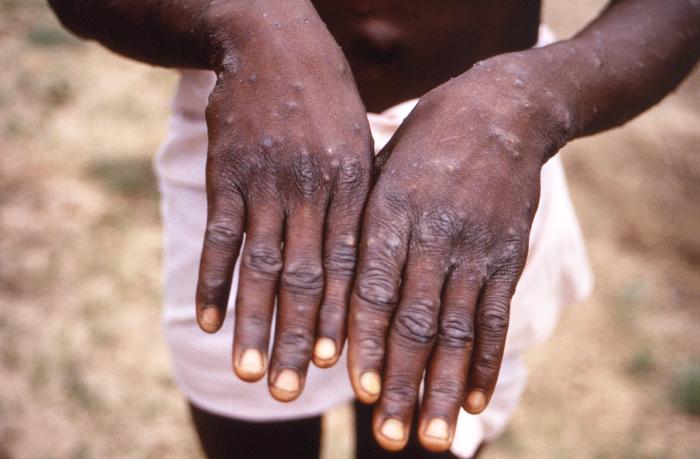The United States government has debunked the claim that the current global outbreak of Monkeypox disease is as a result of the U.S.-controlled laboratories” in Nigeria, while emphasizing that there are no such laboratories in the country.
There have been posts on social media, speculating on the origin of the current global outbreak of the monkeypox disease and a call for the World Health Organisation (WHO) to investigate “U.S.-controlled laboratories” in Nigeria.
In a press release, made available to LEADERSHIP, the US government through its consulate in Lagos, said such reports were pure fabrication, adding that there was zero merit to any allegations regarding the use of US-assisted Nigerian laboratories in the spread of monkeypox.
It said, “There are no “US-controlled” laboratories in Nigeria. These falsehoods detract from the work that the United States, in close coordination with Nigerian and multilateral partners, accomplish together on public health, including in disease surveillance, diagnosis, prevention, and control.”
The US government disclosed that the collaborative work between Nigeria and the United States had provided opportunities for technical assistance in capacity building, equipment, commodities, consumables, and funding to critical public health programme, hospitals and laboratories, adding that all of these contributed greatly to the prevention and amelioration of global disease outbreaks.’
It said monkey pox is not a new disease, nor is it unique to Nigeria or this region, having first been diagnosed in 1970 in the DRC.
“As we work together to contain its spread, exported cases have been reported in the United Kingdom, United States, and other parts of the world,” it explained.
“Such reports are pure fabrication. There is zero merit to any allegations regarding the use of U.S.-assisted Nigerian laboratories in the spread of monkeypox. Furthermore, there are no “U.S.-controlled” laboratories in Nigeria.
“These laboratories are Nigerian, and U.S. support enables them to provide essential services for the public good and the health of Nigeria’s citizens. Especially important, our support to laboratories across the country extends to quality improvements that ensure they have appropriate levels of biosafety and biosecurity requirements in place.
“We will continue to collaborate with the Nigerian government on the ongoing global monkeypox and COVID-19 outbreaks and intensify support to Nigeria in other areas on which we have proudly partnered over the years, such as HIV epidemic control, tuberculosis eradication, malaria elimination, prevention of vaccine-preventable disease, and enhancing food and nutrition,” the statement added.
Meanwhile, the confirmation of monkeypox resurgence in Nigeria and the death of one person with co-morbidity, the federal government has urged hunters and dealers to desist from bushmeat forthwith.
A press statement signed by the minister of Agriculture and Rural Development, Dr Mohammad Mahmood Abubakar, in Abuja said the order was necessary to prevent any possibility of spill over of the pathogen in Nigeria through the practice of selling and buying bush meat.
The minister also advised Nigerians to avoid contact with persons suspected to be infected with monkeypox at home and at work places and discourage the act of consumption, trade and keeping of non-human primate as well as rodents as pets in homes.
He said, “All operators of zoos, parks, conservation and recreational centres keeping non-human primates in their domains must ensure strict compliance with their biosecurity protocols aimed at preventing their contacts with humans and all veterinary clinics, veterinary teaching hospitals and other veterinary health institutions across the country must ensure vigilance so as to be able to pick possible signs and symptoms of monkeypox in non-human primate (NHP) patients.
“Transport of wild animals and their products within and across the borders should be suspended/restricted and silos, stores and other agricultural storage facilities must institute active rodent control measures to prevent contacts and possible contamination of monkeypox virus with foodstuff.
“We must also ensure regular hand washing using strong disinfectant anytime we handle NHP and rodents in our various locations and the general public are hereby advised to report any pox-like lesions seen on humans or animals to the nearest human or veterinary clinics respectively.”
—





